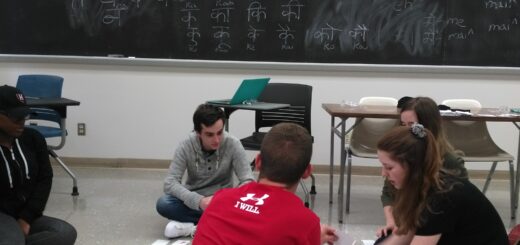Grammar Rules, Tenses & Everyday Examples
Hindi Grammar: Tenses
1. Simple Present Tense / Habitual Tense
Formation: Subject + न + Verb stem + ता / ते / ती + हूँ / हो / है
Example: She doesn’t read the book. वह किताब नहीं पढ़ती है।
2. Past Habitual Tense
Formation: Subject + न + Verb stem + ता / ते / ती + था / थे / थी
Example: She used to play football. वह फुटबॉल खेलती थी।
3. Present Continuous Tense / Progressive Aspect
Formation: Subject + object + verb stem + रहा / रहे / रही + हूँ / हो / है
Example: I am drinking tea. मैं चाय पी रहा हूँ।
4. Past Continuous Tense / Past Progressive
Formation: Subject + object + verb stem + रहा / रहे / रही + था / थे / थी
Example: I was making tea. मैं चाय बना रहा था।
5. Indicative Past Tense
Formation: Transitive: Subject + ने + object + verb + या / ई / ये / यी
Intransitive: Subject + verb + या / ई / ये / यी
Example: I ate food. मैंने खाना खाया।
6. Past Perfect Tense
Formation: Transitive: Subject + ने + object + verb + या / ई / ये / यी + हूँ / हो / है
Intransitive: Subject + verb + या / ई / ये / यी + हूँ / हो / है
Example: I have eaten food. मैंने खाना खाया है।
7. Future Tense
Formation: Subject + object + verb stem + ऊँगा / ऊँगी / ऊँगे / ऊँगी
Example: I will eat food. मैं खाना खाऊँगा।
8. Future Continuous Tense
Formation: Subject + object + verb stem + रहा / रहे / रही + होगा / होगी / होंगे
Example: I will be eating food. मैं खाना खा रहा हूँगा।
9. Subjunctive
Formation: Subject + object + verb stem + ऊँ / ए / एँ
Example: May I come in the room? मैं कमरे में आऊँ?
10. Contrary to the Fact Present Tense
Formation: अगर + Subject + object + verb stem + ता / ते / ती + तो + Subject + verb stem + ता / ते / ती
Example: If I had gone to India, I would have understood Hindi. अगर मैं भारत जाता तो मैं हिंदी समझता।
11. Contrary to the Fact Past Tense
Formation: अगर + Subject + ने + object + perfect tense + तो + Subject + verb stem + ता / ते / ती
Example: If I had gone to India, I would have understood Hindi. अगर मैं भारत गया होता तो मैं हिंदी समझता।
12. Contrary to Fact Continuous Tense
Formation: अगर + Subject + object + verb stem + ता / ते / ती + तो + Subject + verb stem + ता / ते / ती
Example: If I had been going to India, I would have understood Hindi. अगर मैं भारत जा रहा होता तो मैं हिंदी समझता।
13. Absolutive
Formation: Subject + object + verb stem + कर + object + verb (agrees with number and gender)
Example: I go home and eat food. (Having gone home I eat food.) मैं घर जाकर खाना खाता हूँ।
14. Simple Preposition
Examples:
in: मैं घर में रहता हूँ।
on/at: किताब मेज़ पर है।
until/up to: मैं शाम तक पढ़ता हूँ।
from/since: आप कहाँ से हैं?
to: आपको क्या पसंद है?
15. Compound Preposition
Examples:
for: यह फूल आपके लिए है।
in front of X: कार मेरे घर के सामने है।
with: मेरी बिल्ली मेरे साथ रहती है।
below/under X: बिल्ली बिस्तर के नीचे है।
above/up X: किताब बिस्तर के ऊपर है।
to have/near X: मेरा घर कॉलेज के पास है।
16. Questions
Examples:
What: आपका नाम क्या है?
Are you an American?: क्या आप अमेरिकी हैं?
Who: आप कौन हैं?
Whose: सोनू का नाम किसका है?
To whom: आम किसको पसंद है?
Where: आप कहाँ से हैं?
When: आप कब काम करते हैं?
How: आप कैसे हैं?
Which: आपके पास कौन सा फोन है?
How many/much: यह किताब कितनी है?
Until when/how long: आप कब तक काम करते हैं?
For whom: आप किसके लिए फूल लाते हैं?
About whom: आप किसके बारे में जानते हैं?




